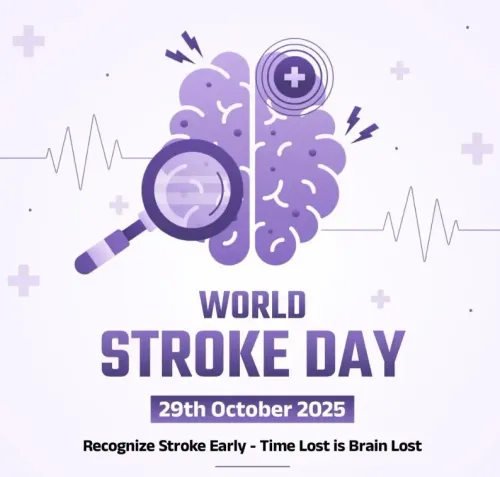WHO: Approximately 300 Children Under 5 Die Daily from Birth Defects in South-East Asia

Synopsis
Key Takeaways
- Birth defects lead to 300 daily deaths among under-5s.
- WHO reports rising death rates from birth defects.
- Global health improvements needed for congenital anomalies.
- Preventable measures include vaccinations and health interventions.
- Investment in vulnerable populations is crucial.
New Delhi, March 1 (NationPress) Each day, birth defects result in the deaths of around 300 children under the age of five in the South-East Asia region, as reported by the World Health Organization (WHO) on Saturday, just before World Birth Defects Day.
Observed annually on March 3, World Birth Defects Day seeks to enhance awareness regarding prevention initiatives and the quality of care provided to individuals with congenital anomalies, disorders, or conditions.
“Over the last two decades, the share of birth defects as a cause of death among children under five has risen from 3.9 percent to 11.5 percent in our region,” stated Saima Wazed, Regional Director for WHO South-East Asia.
“Currently, birth defects rank as the third leading cause of death (11 percent) among children under five in our region, equating to roughly 300 fatalities daily. They also lead to significant morbidity, which often goes unnoticed or unaddressed,” she added.
The global health organization urged nations to heighten awareness about birth defects and bolster health systems to address the unique health, developmental, and psychosocial requirements of this demographic. This should be accompanied by efforts to prevent, identify, and manage these congenital anomalies, Wazed emphasized.
Birth defects significantly affect an individual's quality of life and impose a substantial burden on families, communities, society, and healthcare systems.
Wazed remarked that while genetics plays a critical role, many birth defects can be averted through health system interventions.
Preventative measures include rubella vaccination, managing sexually transmitted infections during pregnancy, and tackling environmental factors such as exposure to pollutants, lifestyle choices, and socioeconomic conditions impacting expectant mothers and fetuses.
Moreover, Wazed called on countries to “reaffirm their investment in women, girls, adolescents, and vulnerable populations.”
In addition to prioritizing birth defects, she highlighted the necessity of strengthening health systems for early detection and management by establishing and expanding newborn screening tests for birth defects and other conditions.
“Countries must invest in establishing or enhancing their birth defect surveillance systems, with a focus on improving the availability, analysis, and application of relevant data for informed programmatic decisions,” stated the Regional Director.








